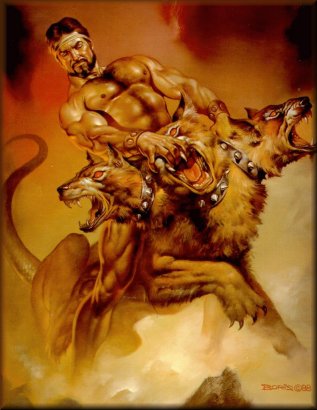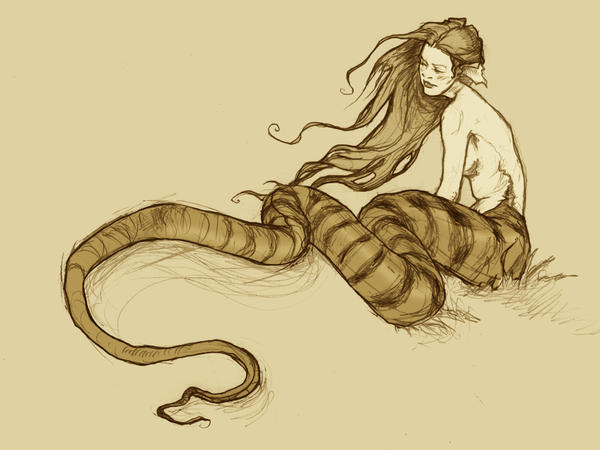Cerberus (roman mythology)
Cerberus or Kerberos, (Greek form: Κέρβερος, in Greek and Roman mythology, is a multi-headed hound (usually three-headed) which guards the gates of the Underworld, to prevent those who have crossed the river Styx from ever escaping. Cerberus featured in many works of ancient Greek and Roman literature and in works of both ancient and modern art and architecture, although, the depiction and background surrounding Cerberus often differed across various works by different authors of the era.

Lamia (greek mythology)
In ancient Greek mythology, Lamia (Greek: Λάμια) was a beautiful queen of Libya who became a child-eating daemon. Aristophanes claimed her name derived from the Greek word for gullet , referring to her habit of devouring children.
Diodorus goes on to relate Lamia had an affair with Zeus and bore him children. When Hera, Zeus' wife, discovered the affair, she became enraged and killed the children. Driven insane with grief, Lamia began devouring other children, and, according to Diodorus, her face became hideously distorted from her grisly deeds.
Zeus then gave her the ability to remove her eyes. In Diodorus the purpose of this is unclear, but other versions state this came with the gift of prophecy. Zeus did this to appease Lamia in her grief over the loss of her children.
Later stories state Lamia was cursed with the inability to close her eyes so that she would always obsess over the image of her dead children. Some accounts (such as that of Horace, below) say Hera forced Lamia to devour her own children. Myths variously describe Lamia's monstrous (occasionally serpentine) appearance as a result of either Hera's wrath, the pain of grief, the madness that drove her to murder, or - in some rare versions - a natural result of being Hecate's daughter.



No comments:
Post a Comment